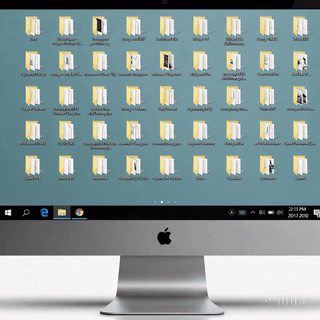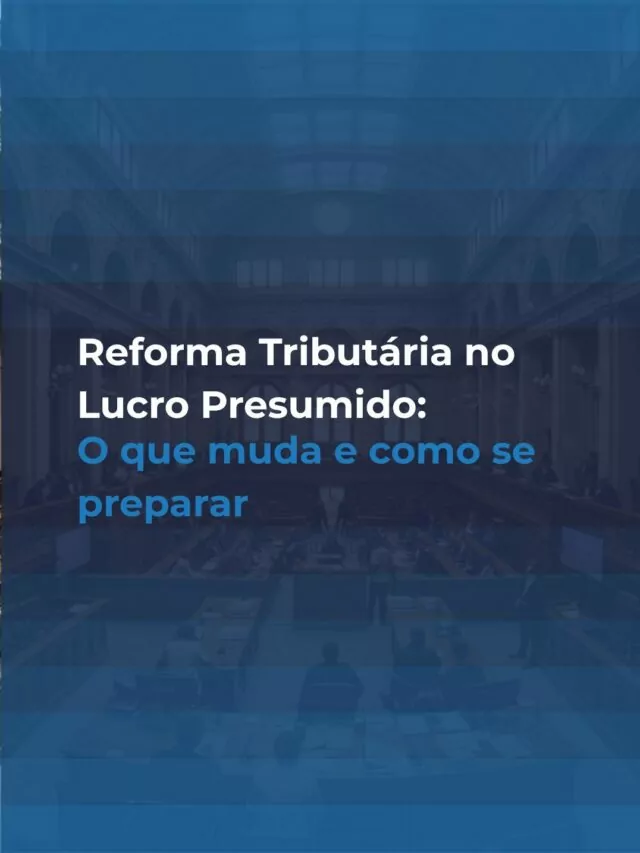A DERE is the new Electronic Declaration of Specific Regimes, created within the Tax reform to centralize and standardize tax information for companies operating under special regimes that do not follow the general rules of the IBS and CBS.
The requirement for DeRE is linked to Joint RFB/CGIBS Act No. 1 of December 22, 2025, which structured the accessory obligations of the Consumer Tax Reform as of January 1, 2026.
It gained prominence in 2025 because it marks a profound change in tax compliance: with the gradual replacement of PIS, Cofins, ICMS and ISS by IBS and CBS, the government needed to create an exclusive channel to monitor differentiated operations, and that channel will be precisely the DERE. The Federal Revenue Service and the IBS/CBS Steering Committee have issued announcements indicating that the new taxes (IBS and CBS) and ancillary obligations, including the DeRE, will be implemented through new mechanisms and their own layouts as of January 1, 2026, with the specific technical documentation still under development.
In this article, we explain What is DERE, why is it important, who will be impacted, how does delivery work, and what do business owners need to do to prepare for 2026?.
Who needs to deliver
The list of sectors can be expanded or adjusted by normative acts of the Federal Revenue Service and the IBS Management Committee, according to the layouts and technical instructions that will be published in the process of implementing the tax reform.
The obligation falls mainly on companies subject to special tax regimes that is, those with differentiated tax treatments under complementary law. It does not affect all companies, but especially strategic segments. Among the sectors cited by experts are:

-
Financial and banking institutions (banks, credit unions, insurance companies).
-
Health insurance plans and medical providers.
-
Clubs and SAFs (Public Limited Football Companies) and organized sports activities.
-
Gaming, lotteries, and betting of predictions and games of chance.
-
Real estate market (incorporation, civil construction, and real estate rental).
-
Energy, telecommunications, and fuel sectors.
-
Companies with regional tax benefits (exemptions, reductions in the tax base, presumed credits, etc.).
These segments have billing and special operations (commissions, financial spreads, advance revenue, etc.) that do not fit well with the common dual VAT model (IBS/CBS). Therefore, they will need to inform the Internal Revenue Service and to the Management Committee of the IBS/CBS all amounts due, calculation bases, and operations of these regimes through DERE.
It is worth emphasizing: the size of the company (microenterprise, small business, simplified tax regime, presumed or actual profit) is not the main criterion—what defines the obligation is the special tax regime.
Rodrigo Ribeiro — Director and Accounting Specialist
What happens if you don't submit the DERE
Failure to comply with this obligation will result in penalties equivalent to those for other tax returns. See below:
-
Fines for late delivery or inconsistencies in the information declared;
-
Suspension or loss of tax benefits, including blocking of incentives and tax credits linked to special regimes;
-
Greater exposure to electronic surveillance, with automated data cross-checking;
-
Risk that simple entry errors can quickly turn into tax liabilities;
-
Possibility of joint liability for accountants and companies in cases of omission or incorrect information.
The specific penalty regime for the DeRE has yet to be consolidated by complementary normative acts, especially with regard to fines and infractions, and the general rules on accessory obligations in force must be observed.
What is it used for in practice?
In practical terms, DERE solves the problem of current fragmentation of tax obligations. Today, companies with special regimes fill out various reports and Gias, generating redundancy and inefficiency. The new declaration unifies this data into a single electronic format. Among the main advantages pointed out by consulting firms are:
-
Unification of tax data: All data from a special regime will be consolidated into a single document, reducing duplication. (Avalara points out that DERE will centralize information that was previously scattered across different declarations.)
-
“Automatic ”acknowledgment of debt": When submitting the declaration, the company acknowledges the taxes calculated (IBS/CBS) under its regime, streamlining the collection process. This similar model already exists in DCTFWeb and ensures greater transparency (as noted by Avalara).
-
More fiscal control: With standardized and electronic data, tax authorities will be able to cross-reference information in real time between companies, invoices, and special tax regimes. This makes tax evasion more difficult and increases the efficiency of tax enforcement, meaning it becomes easier to identify inconsistencies and fraud, as experts warn.
These changes benefit the government (which gains a consolidated view of revenues and greater security in collection) and the companies themselves that deliver correctly (which have fewer duplicate requirements and more predictability in tax assessment). In other words, DERE standardizes the “digital mirror” of special regimes. For the tax and accounting areas, this means replacing several manual tasks with computerized processes: management systems (ERP, SPED, DCTFWeb, etc.) will need to automatically generate the declaration in the required format.
Impacts in 2026
The DERE requirement officially begins on January 2026, This is when the first valid submission of the declaration will take place. The information declared in 2026 will refer to the period defined by the Internal Revenue Service regulations, which makes it essential for companies to start preparing as early as 2025.
RFB/CGIBS Joint Act No. 1/2025 establishes an adaptation period throughout 2026, allowing taxpayers to test and adjust the filling in of fields related to IBS/CBS without immediate application of penalties.
Deadlines, rules, and how delivery works

As mentioned, the official delivery of DERE is scheduled for from January 2026.
The exact start date, periodicity and definitive layout of the DERE still depend on complementary normative acts from the Federal Revenue Service and the IBS Management Committee.
In practical terms, the current expectation is that the statement is sent via the internet, through the e-CAC Portal from the Federal Revenue Service, using a digital certificate, on a regular basis (perhaps monthly, although this has not yet been confirmed). Jettax informs:
“The submission will be made through e-CAC and must follow a layout that is yet to be defined by specific regulations... It is expected that the declaration will be monthly, although this is still under discussion.”
Rodrigo Ribeiro — Director and Accounting Specialist
The data sent by the company will be received by the Internal Revenue Service and will also be available to the IBS/CBS Management Committee. In other words, DERE will integrate the government systems responsible for the new taxes.
Relationship with oversight, fraud prevention, and data cross-referencing
DERE is a key part of the new digital enforcement ecosystem. As the data will be standardized and integrated, the IRS will be able to cross-reference information in real time between electronic invoices, special regimes, and other declarations. This makes oversight much more efficient. As sources point out, with the electronic delivery of DERE.
In addition, the DERE requirement itself serves as a preventive factor. Knowing that enforcement will be stricter and automated, companies tend to immediately strengthen their tax compliance practices. This includes internal audits, staff training, and the adoption of management systems that keep records in order at all times.
Practical example
To visualize this in practice, imagine a construction company that has an ICMS exemption on construction inputs or a regional tax discount for housing projects. With DERE, it must report all these benefits (legal basis, credit amount, validity period, etc.).
If the construction company fails to declare or incorrectly fills in this information, it may suffer credit freeze accumulated and having to pay the tax due immediately. As Fecon Contabilidade warns, failure to comply with
Top 5 questions about DERE
1. Is DERE mandatory for all companies?
No. The requirement only applies to companies that fall under special tax regimes, such as finance, telecommunications, health insurance, energy, fuel, betting, civil construction, real estate development, and businesses that have specific tax incentives or benefits. MEIs and Simples companies are generally excluded — less who work in sectors requiring special treatment.
2. Which declarations does the DERE replace?
She does not replace DCTFWeb, EFDs, DEFIS, or SPED.
DERE was created to centralize information on special regimes, which are currently scattered across different documents and internal controls. This is a new requirement, created specifically to comply with the IBS/CBS model.
3. What happens if I do not submit the DERE?
The company may suffer:
- Fines due to delay or error;
- Blocking or suspension of tax benefits;
- Automatic billing of values considered inconsistent;
- Risk of electronic fines, since the inspection will be 100% digital.
In some sectors, failure to comply may halt operations that depend on tax authorization.
4. When does it start and where will it be delivered?
The requirement is scheduled for January 2026.
5. My company uses Presumed or Actual Profit: does this automatically affect me?
No. The tax regime (Presumed/Actual) does not define the obligation.
Prompt to add videos in 3 languages to the site
Conclusion
The Electronic Declaration of Specific Regimes (DERE) represents a significant change in Brazilian tax compliance. Created by the Tax Reform to support the implementation of the IBS and CBS, it unifies all special taxation regimes into a single ancillary obligation.
The issue is complex, but you don't have to deal with it alone. CLM Controller, a company specializing in accounting and tax management is ready to guide your business through this transition. With experience in digital obligations and special regimes, CLM can help map out which regimes apply to your activity, organize accounting and tax records, configure systems to generate the correct declaration, and keep you informed of all deadlines and legal changes.
In partnership with CLM Controller, business owners gain peace of mind and compliance, focusing on the growth of their company while leaving the complexities of the new obligation to the experts. Contact us now.









